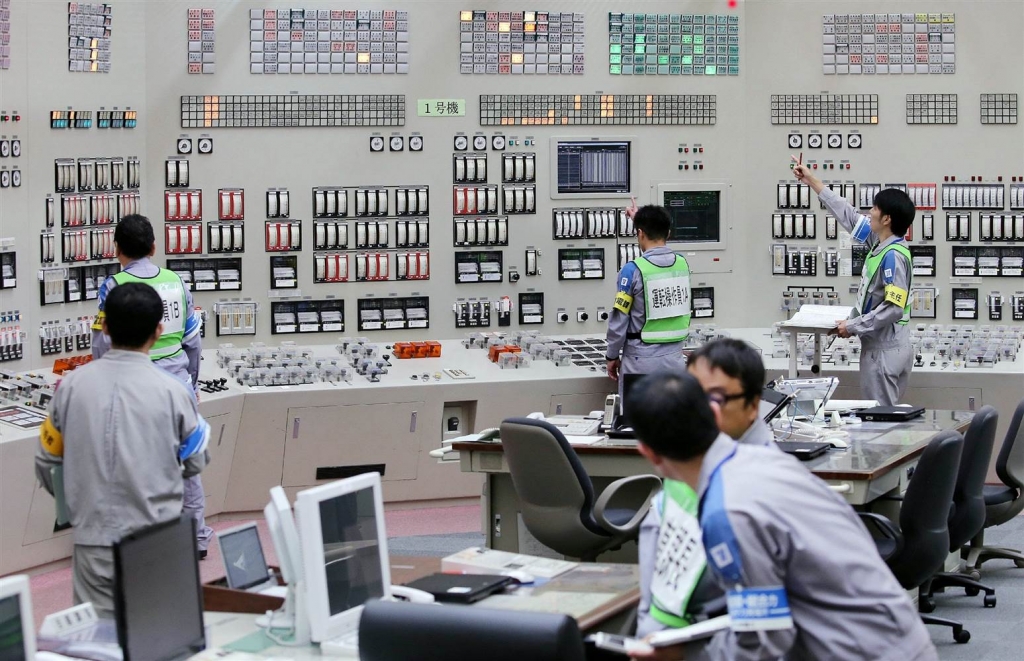-
Tips for becoming a good boxer - November 6, 2020
-
7 expert tips for making your hens night a memorable one - November 6, 2020
-
5 reasons to host your Christmas party on a cruise boat - November 6, 2020
-
What to do when you’re charged with a crime - November 6, 2020
-
Should you get one or multiple dogs? Here’s all you need to know - November 3, 2020
-
A Guide: How to Build Your Very Own Magic Mirror - February 14, 2019
-
Our Top Inspirational Baseball Stars - November 24, 2018
-
Five Tech Tools That Will Help You Turn Your Blog into a Business - November 24, 2018
-
How to Indulge on Vacation without Expanding Your Waist - November 9, 2018
-
5 Strategies for Businesses to Appeal to Today’s Increasingly Mobile-Crazed Customers - November 9, 2018
Japan restarts first nuclear power plant under new rule since Fukushima tragedy
For the first time since the Fukushima disaster in March 2011, Japan has restarted a nuclear reactor on its soil.
Advertisement
“We hereby announce that as of today, Sendai Nuclear Power Unit No. 1 has extracted control rods from the reactor and started up at 10:30 a.m. [local time]”, Kyushu Electric Power Co. said in a statement.
Answer: The government has set a target of 20 to 22 percent of its total electricity coming from nuclear by 2030.
The government and much of Japanese industry want reactors to be restarted to cut the country’s fuel costs, but opinion polls show a majority of the public oppose the move.
The newspaper said the successful restart is a major boost to Prime Minister Shinzo Abe who has been arguing that nuclear power is necessary for lowering electricity prices and boosting the economy.
Japan’s Nuclear Regulation Authority announced in May that it had approved two reactors at the Sendai plant under the newer, stricter safety rules.
More than four years later, some areas near the plant are still uninhabitable, and more than 110,000 people continue to live as evacuees in and outside of Fukushima.
Prior to the Fukushima disaster, about 30% of Japan’s energy was nuclear generated. The restart of the Sendai reactor thus marks a major victory for nuclear proponents at not only the national level but in other localities looking to restart another two dozen reactors. Nuclear operators have applied for 25 reactors to be restarted with five now granted permission to go back online, but local residents are hoping to block the decisions in court.
Among the 200 protesters was Naoto Kan, prime minister at the time of Fukushima and now a high-profile anti-nuclear activist.
It led to a complete shutdown of Japan’s nuclear power plants in 2013, which will end Tuesday, if the Sendai facility opens as planned.
The Sendai plant is the furthest away of Japan’s reactors from the capital Tokyo, where protesters regularly gather outside Abe’s official residence to oppose atomic energy.
Yoichi Miyazawa, Japan’s industry minister, said Tuesday that the government would “put safety first” in resuming use of nuclear power. “The same players in the “nuclear village” that delivered Japan the Fukushima Daiichi tragedy in 2011 are attempting to kick-start nuclear power again”, said Shaun Burnie, a nuclear specialist based at Greenpeace Germany, according to The Guardian. Experts have also warned that reactors left idle for years tend to experience teething problems and that such a mass restart of dormant reactors has never been attempted before, says our correspondent.
Advertisement
Despite the NRA’s seal of approval for Sendai-1, critics say there are many unanswered questions, especially concerning the many active volcanos near the Sendai plant site.





























